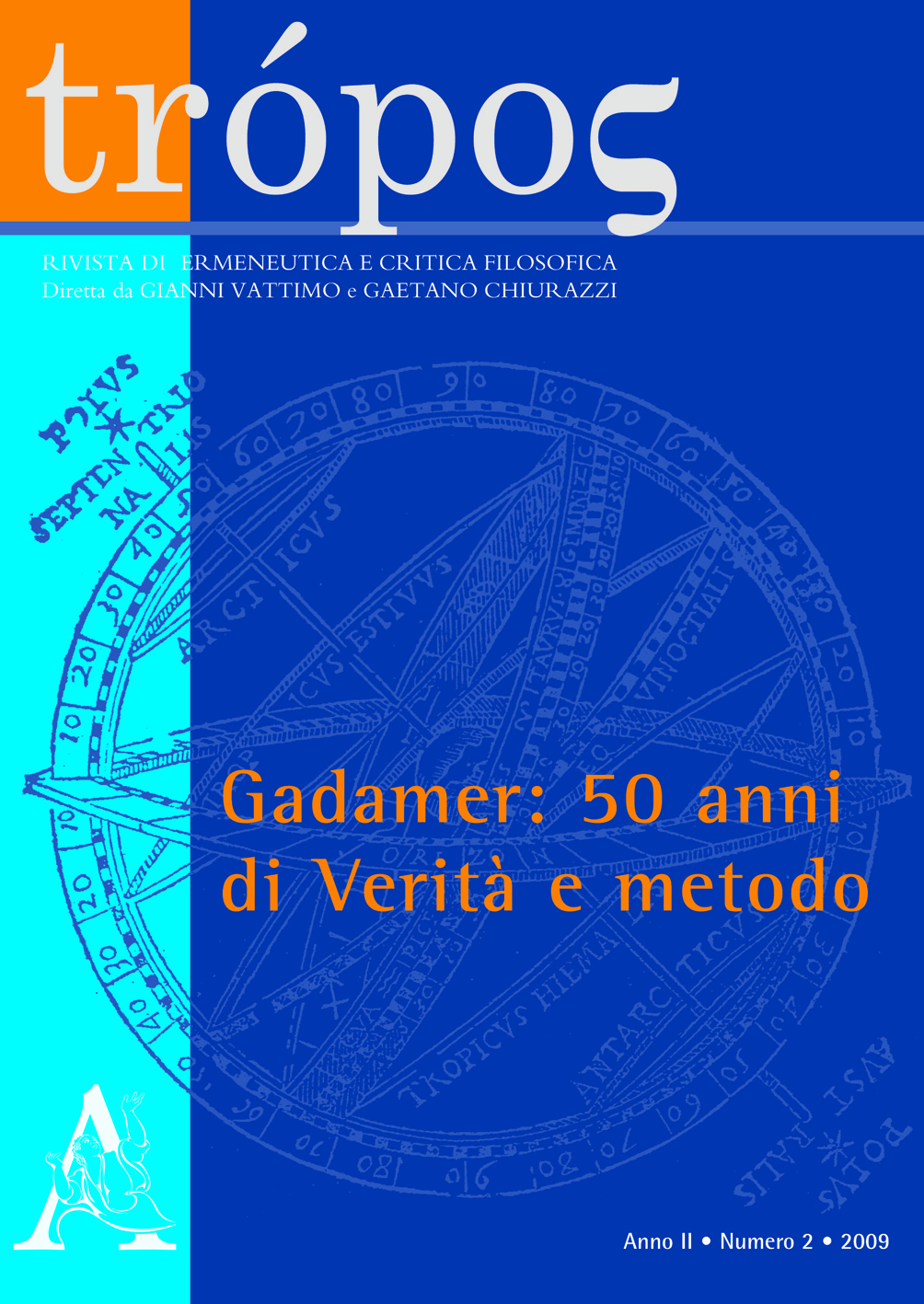L’impostazione trascendentale tra "Essere e tempo" e "Verità e metodo"
DOI:
https://doi.org/10.13135/2036-542X/7672Parole chiave:
transcendental, Heidegger, Gadamer, hermeneutics, ontologyAbstract
This essay considers the way in which Gadamer develops his linguistic ontology, focusing particularly on the gap between subjectivity and transcendental structure of the understanding which Heidegger had established in Being and Time. A special attention is dedicated to the conclusion of the first section of the second part of Truth and Method, in which Gadamer clarifies his reliance with Heidegger: the incapacity of the historical sciences to face the problem of life requires a different ontological setting. To this end, Heidegger had suggested to understand the being as temporal horizon in which things appear thanks to ontological difference. Towards Heidegger’s thought were converging the previous reflections of Nietzsche, Dilthey and Husserl on the life as much as the efforts of neo-Kantianism in view of a foundation of natural sciences. Hermeneutics ceased to be a technical discipline and turned itself into ontology. The search for the conditions of knowledge was indeed beyond any epistemological question.



